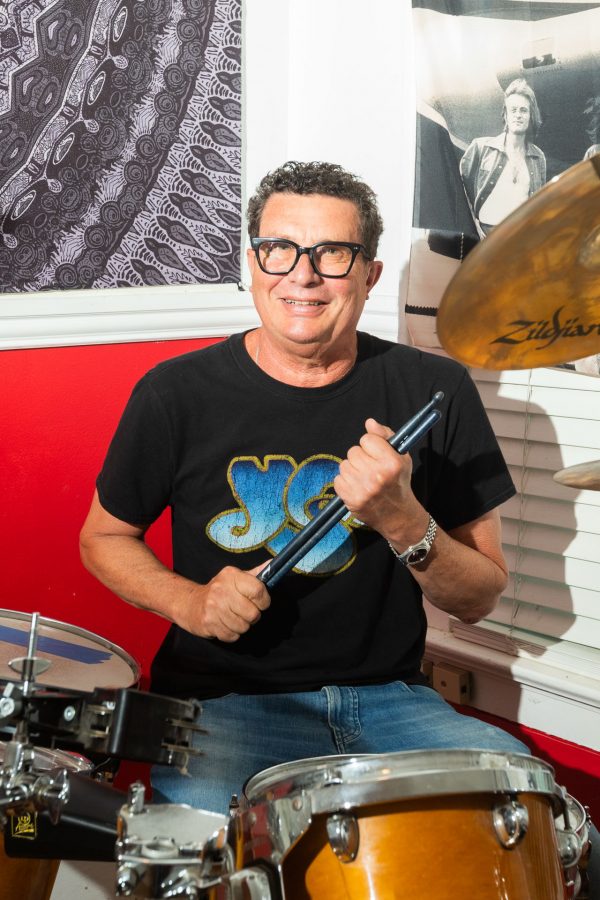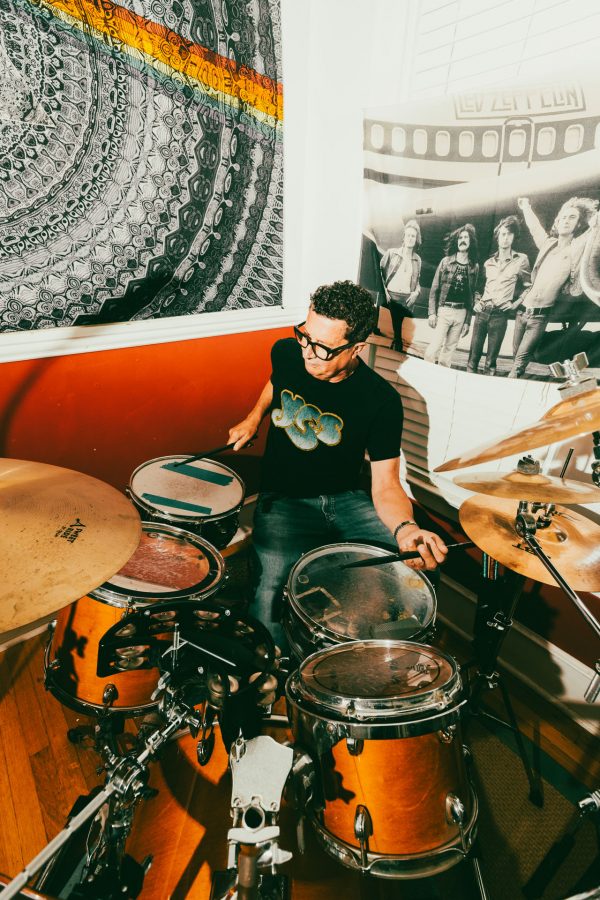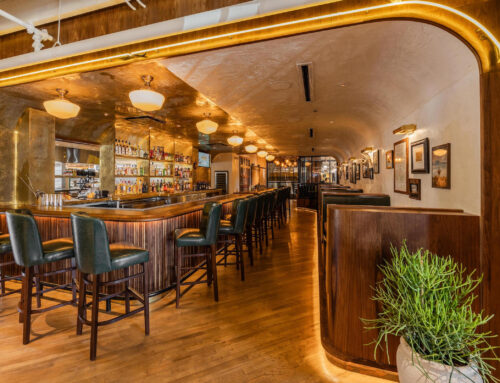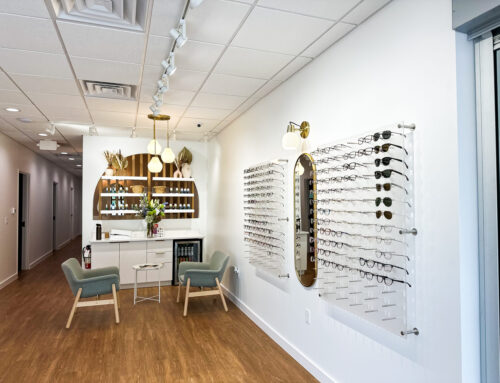
Photography by Jessica Turner.
In Mark Beal’s home office where he sees therapy clients, it’s telling that a thick volume of the DSM-5 shares space with a side table fashioned out of a drum. Beal is a believer in the healing power of music and was an enthusiastic Ringo-inspired drummer and performer until a devastating physical setback a few years ago. Beal says he is now ready to challenge his fears. He’s ready to rock again.
Beal was just a 9-year-old kid in Kansas City back in 1963 when he heard “She Loves You” come crackling through his transistor radio. “That song was so different and intense,” he says. “Ringo starts it off and the drums are as loud as the other instruments.” He immediately announced to his family that he wanted to be like Ringo.
Jumping at every opportunity to see or hear The Beatles, Beal recalls taking desperate measures to catch their performance on The Ed Sullivan Show one Sunday evening, a traditional Baptist service time. His father being the church minister, Beal laughs as he describes feigning illness to stay home and plant in front of the TV.
Up to that point, Beal had been fed a steady diet of church hymns and classical music. He enjoyed playing his parents’ collection of 78 RPM classical recordings and discovered he “experienced a connection between classical and rock music.” He says, “Both depended on melody, repetition and often loud passages.”
An upside down metal trash can and wooden dowels served as his first drum set, to be replaced three years later with an actual set. Always a music lover, Beal had attempted guitar, violin and other instruments, but none felt right. Drums were a whole different animal for him.
“When I sat down in front of the drums/cymbals, it seemed my hands and feet and brain all came together,” he says.
He first took the stage in sixth grade for a school talent show and would go on to play in bands in Abilene, Houston, Nashville and Dallas. Yeah, he has stories.
While in college in Abilene, he was part of a “pick up” band, composed of whoever was available to play on any given night. They had no name, but Beal laughs, “I would have called us the Hardin Simmons Sinners.”
One of the most memorable gigs was at a private club named The Cave. In a scene straight out of “The Blues Brothers” movie, the band played country music on a stage surrounded by chicken wire — to protect the band from drunkenly tossed beer bottles. Yes, there were glass projectiles; no, there were no injuries.
Beal spent about three years in Nashville trying his luck in Music City. “My band was called ‘The Unknowns,’ and that describes our level of success,” he says. He muses it might have had something to do with the fact that they played The Clash and Pink Floyd in the country music capital.

Beal loved his music but was practical.
“Drumming was my first love, but I had to find something else to pay the bills,” he says.
He felt his degree in psychology and graduate degree in counseling were natural extensions of music. “Both therapy and music are about expressing what is inside of us,” he says.
He adds, “Music bypasses our rational problem-solving thinking, and takes us on a journey close to the edge of healing and exquisite joy.”
As a therapist, he encourages clients to bring their musical instruments into sessions and asks what songs he should listen to so he can learn more about them.
“I also ask clients to name their current theme song, the song that describes their place in life now.” One going through a divorce named The Who’s “We’re Not Gonna Take It”; another dealing with childhood memories chose Peter Gabriel’s “Digging in the Dirt” and another managing chronic depression found solace in The Eagles’ “Take It Easy,” he says.
Beal enjoyed his therapy career in Dallas but continued playing gigs at venues mostly in the neighborhood such as O’Riley’s and The Green Elephant until 2011. “I lost the hearing in my right ear from a viral infection on Thanksgiving Day,” he says, and now wears a hearing aid in his left ear as compensation.
For five long years, Beal didn’t touch the drums, afraid he could no longer keep a beat. Ironically, it was more loss in his life that prompted him to pick up the drum sticks again. After losing several loved ones in a relatively short period of time, he decided, “I had nothing left to lose. It was play drums or self destruct.”
The first time playing after such a long time? “It felt natural, like putting on your favorite flannel shirt in the fall,” he says.
He now plays several times a week, but it’s not the same as performing.
“Playing different drum beats and fills can get boring fast when you’re alone. It’s with other musicians that the magic happens: the tuning of the guitars, microphone checks, lighting tests, amp feedback … all combine to create this wave of energy that excites and surprises and makes you smile,” he says.
He’s ready to rock again and hoping to connect with other musicians about his age who want to play music just for the love of playing. To quote Beal’s own current theme song, “Lights of Home” by U2: “I believe my best days are ahead/I can see the lights in front of me.”





